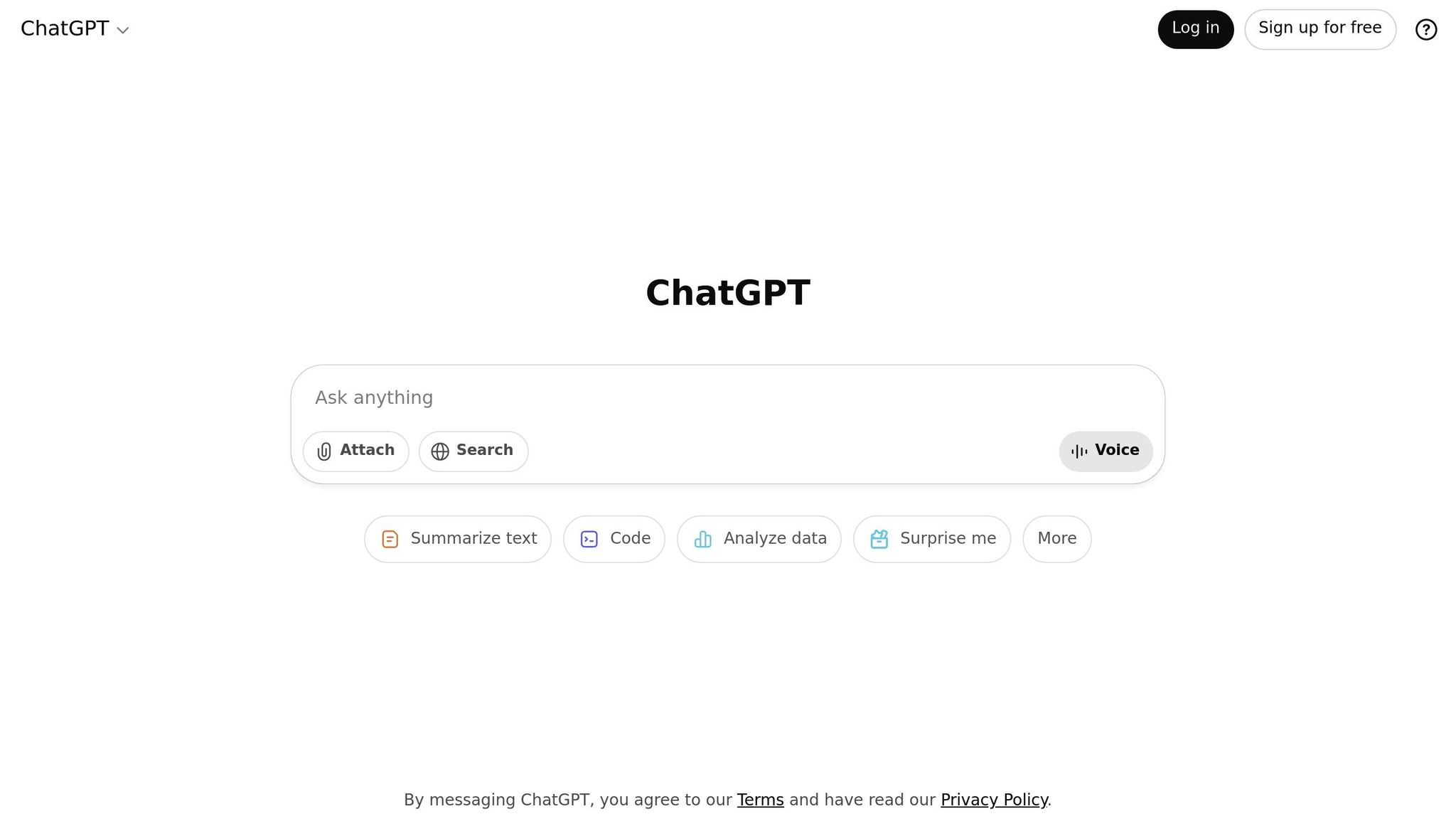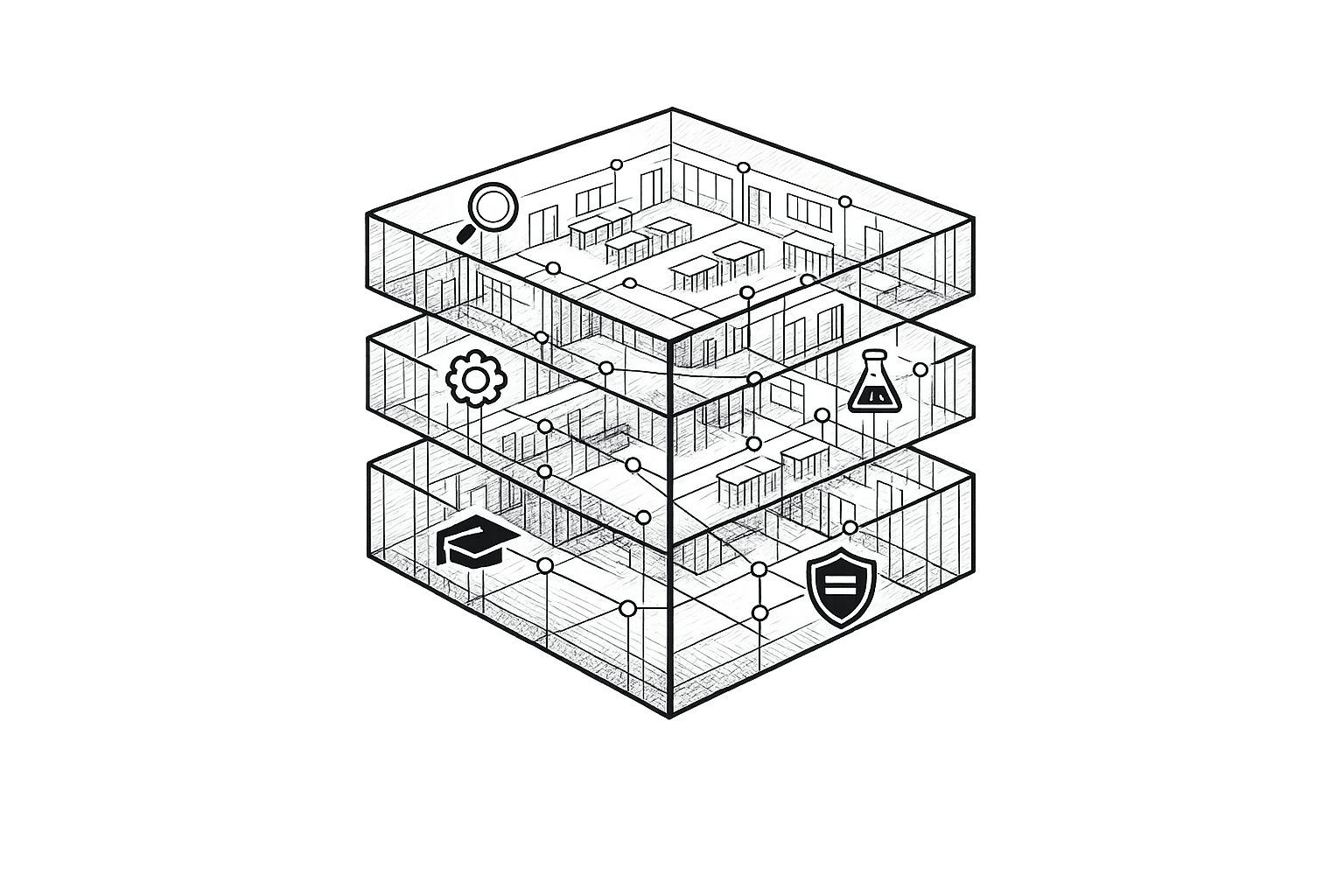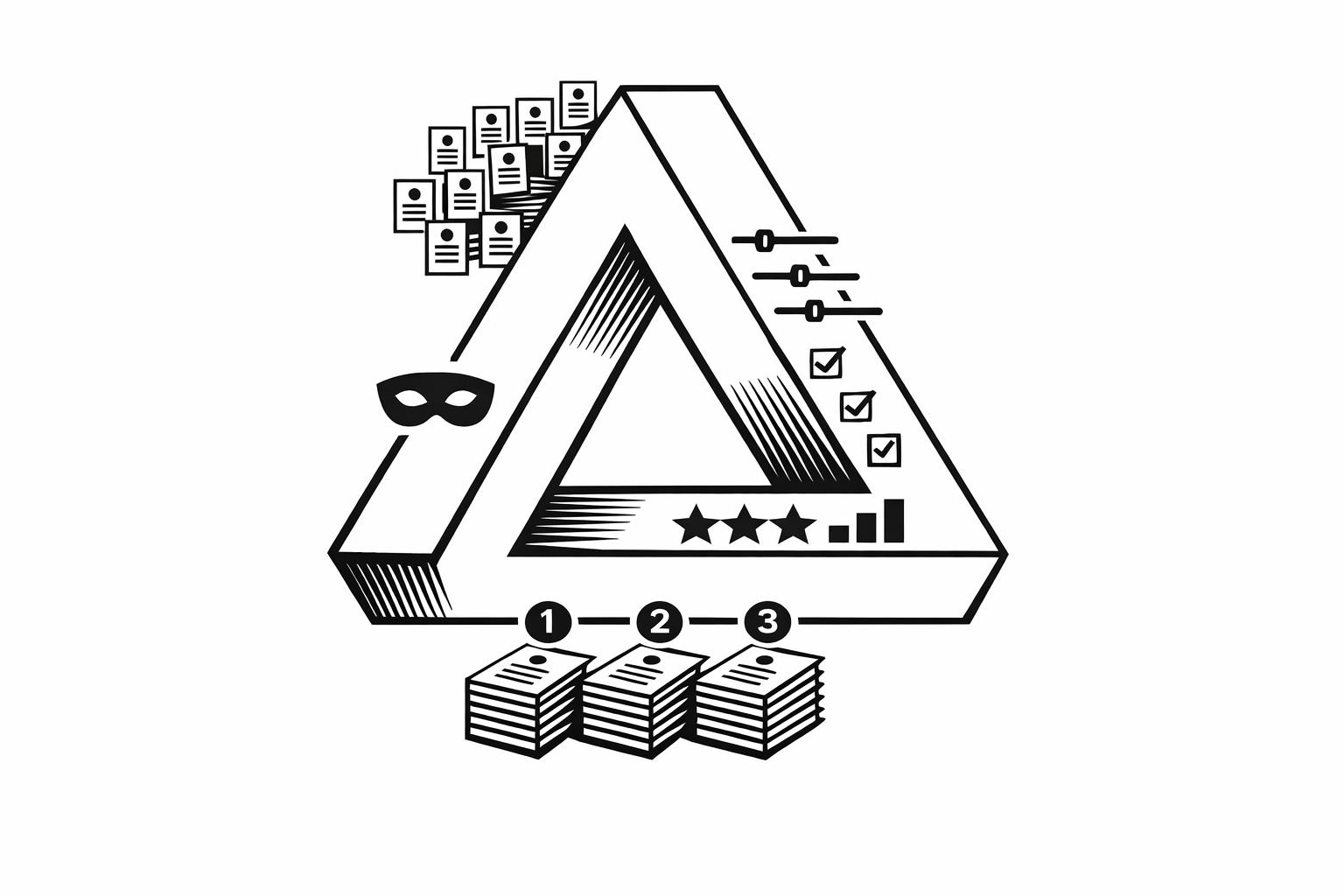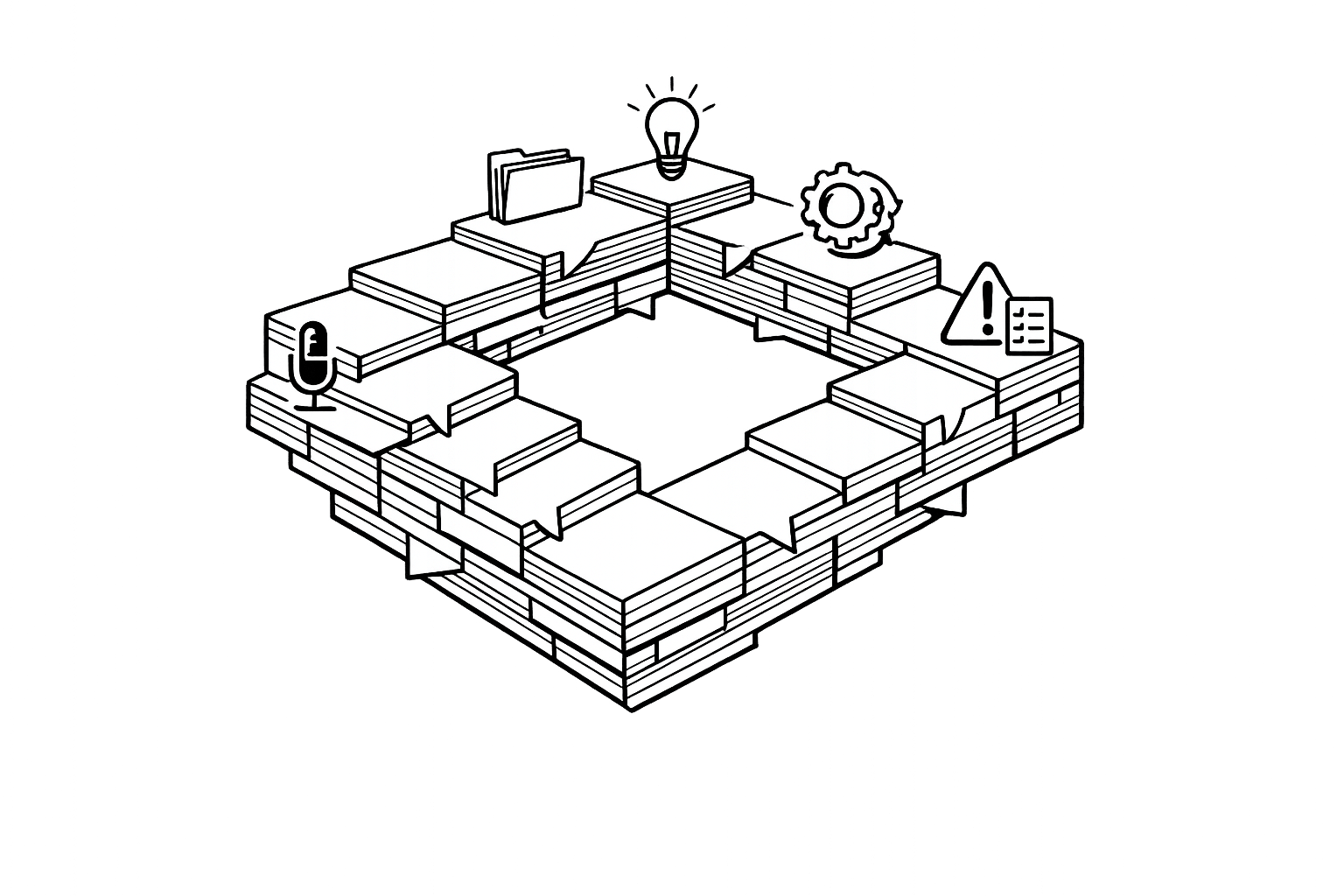25 Business Prompts for ChatGPT That Solve Common Small Business Problems

Running a small business is no easy feat. Inflation, time shortages, and managing multiple responsibilities make it challenging to stay efficient. Here's the good news: AI tools like ChatGPT can help tackle these issues head-on. From automating repetitive tasks to creating tailored marketing campaigns, ChatGPT offers practical solutions to streamline operations, improve customer communication, and boost productivity.
This guide provides 25 actionable ChatGPT prompts designed specifically for U.S. small businesses. They cover essential areas like:
- Operations: Automate workflows, create SOPs, and resolve bottlenecks.
- Marketing: Write better email campaigns, A/B test messages, and personalize outreach.
- Customer Service: Generate response templates, handle complaints, and recommend products.
- Finance: Plan budgets, forecast cash flow, and manage expenses.
- HR: Write job descriptions, resolve conflicts, and design training programs.
- Sales: Target key customers, personalize pitches, and analyze sales data.
- Legal & Compliance: Generate checklists, draft policies, and keep up with regulations.
- Tech Integration: Choose the right tools and calculate ROI.
Why now? With 98% of small businesses using AI tools in 2025, leveraging prompts like these can save time, reduce costs, and simplify decision-making. Start by picking a few prompts aligned with your priorities, and see how they transform your business operations.
10 Game-Changing ChatGPT Prompts for Your Small Business

1. Streamlining Operations
Automate Task Identification and Prioritization
The first step in making your operations more efficient is figuring out which tasks are draining your time. In July 2025, Jodie Cook from Forbes.com suggested that small business owners use ChatGPT to pinpoint tasks that could benefit from automation or streamlining with AI. Start by listing your key activities, then rate each one on a scale of 1 to 10 based on how easily it could be automated. Focus on tasks that score 5 or below, as these are the best candidates for AI-based automation. These often include repetitive work like administrative tasks, data entry, and compiling research.
"Based on what you know about my work from our previous conversations, help me identify which of my daily tasks could be automated or streamlined with AI. First, ask me to list my main work activities from this week. Then, for each task I mention, rate its automation potential on a scale of 1-10 and explain why. Focus on tasks rated 5 or below as immediate opportunities. Create a prioritized list of 3 tasks I should automate first, with specific AI tools or methods for each."
Once you've identified and prioritized tasks, the next step is turning them into actionable plans.
Create Step-by-Step Standard Operating Procedures
ChatGPT can help you take messy workflows and turn them into clear, step-by-step Standard Operating Procedures (SOPs). This ensures consistency across your team and is especially useful for small businesses where processes often evolve without formal documentation.
"Turn this process into a step-by-step SOP with bullet points and clear headings: [describe process]."
To stay organized, maintain a library of effective prompts and set aside time each week to review and refine these processes. This habit saves you from having to start from scratch every time you need to document a new workflow.
Identify and Eliminate Operational Bottlenecks
Once tasks are streamlined, it's time to address bottlenecks that slow down your operations. A business can only grow as fast as its slowest process. ChatGPT can analyze workflows to find where delays happen and why. For example, if a flowchart of your marketing process shows that approvals are consistently slowing things down, it might be time to simplify that stage or improve communication between departments.
"I want to use AI to handle [describe a specific repetitive task from your work]. Based on what you know about my business and working style, create a step-by-step guide for automating this task while maintaining quality. Include: specific AI tools to use, exact prompts or workflows to implement, potential pitfalls to avoid, and how to maintain a human touch where needed. Make this actionable enough that I could implement it today."
Using ChatGPT, you can monitor key metrics like wait times, backlog volumes, and throughput to pinpoint inefficiencies. Once identified, you can address these by improving input quality, assigning tasks to skilled team members, or increasing capacity through hiring or automation.
2. Enhancing Marketing Strategies
Write Persuasive Email Campaigns
Email marketing is a budget-friendly way to connect with your audience, but creating content that truly engages can be tricky. This is where ChatGPT steps in. It can help you craft personalized, persuasive email campaigns that align with your audience's preferences. By following the C.R.E.A.T.E framework - assigning ChatGPT a character, making a clear request, providing examples, tailoring for relevance, specifying the output type, and adding extras - you can combine AI's capabilities with your expertise to keep your brand voice consistent.
To make your emails even more compelling, use strategies like creating urgency, highlighting scarcity, incorporating social proof, or adding testimonials.
Create Multiple Email Versions for A/B Testing
Stop guessing which email will perform better. With ChatGPT, you can generate multiple email variations to test different approaches. Experiment with emotional appeals and targeted messaging to see what resonates most with your audience. For example:
"Create an email copy + subject line personalized for a Marketing Manager at a tech startup who’s focused on increasing ROI but has limited time to explore new strategies."
"Write an email copy and subject line sharing a success story about how AI Newsletter improved open and email rates dramatically."
"Develop an email copy and subject line that addresses low engagement rates and offers an AI-powered newsletter solution to save time and boost personalization."
Automate Follow-Up Emails and Customer Lifecycle Messages
ChatGPT simplifies the process of creating email workflows that nurture leads and keep customers engaged. Whether it’s a welcome email, an abandoned cart reminder, or an invitation to upgrade, you can customize prompts to suit every stage of the customer journey. For instance:
"Write an email copy and subject line reminding a customer about their abandoned cart."
"Create an email copy and subject line inviting the recipient to upgrade to premium."
These tactics not only streamline your email marketing efforts but also set the stage for more advanced AI-driven automation in customer communication, which will be explored further in the next sections.
3. Improving Customer Communication
Generate Professional Response Templates for Common Inquiries
Once you've fine-tuned your marketing strategies, it's time to focus on how you interact with your customers. Just like refining your operations, improving customer communication can boost your overall efficiency. ChatGPT is a powerful tool for creating polished, helpful templates to address the questions your customers ask most often. Whether it's inquiries about return policies, shipping details, or product specifics, you can craft consistent, on-brand responses that solve problems quickly and professionally.
For instance, a small e-commerce business could train ChatGPT using its FAQ section and product details. This setup allows the AI to provide instant answers to questions like, "What is your return policy?" or "Do you offer free shipping?". Additionally, ChatGPT can assist in handling complaints with a tone that’s both empathetic and solution-oriented.
Create Empathetic Scripts for Handling Complaints and Conflicts
Addressing customer complaints requires a mix of understanding and professionalism. ChatGPT can help you craft scripts that acknowledge frustrations while offering meaningful solutions. For example:
"Imagine you’re a customer service representative in [industry name]. One of your customers is upset due to [specific issue]. Respond in a way that resolves the problem and restores their trust."
By preparing such scripts, you can ensure that even challenging interactions leave customers feeling heard and valued.
Develop Personalized Product Recommendations
Generic product suggestions can often feel disconnected. ChatGPT can help bridge that gap by analyzing customer behavior and preferences to deliver tailored recommendations. By feeding the AI data like purchase history, browsing habits, and stated interests, you can create suggestions that feel thoughtful and relevant. This personalized approach not only enhances customer satisfaction but also encourages repeat business.
4. Boosting Productivity
Identify and Automate Repetitive Tasks
Many small business owners lose valuable hours each week to repetitive tasks that don’t add much value. That’s where automation comes in. ChatGPT can analyze your workflow to identify these time-consuming tasks and suggest ways to automate them. For instance, you can ask ChatGPT to review your daily routine and provide a step-by-step guide to pinpoint and streamline repetitive processes.
A great example comes from March 2025, when YouCanBookMe highlighted how ChatGPT can help craft appointment confirmations, reminders, and follow-up messages. These messages can then be sent automatically through their scheduling tool, ensuring businesses deliver timely updates while maintaining a consistent and professional tone.
Design Tailored Automation Workflows
Once you’ve identified the tasks eating up your time, the next step is creating custom automation workflows. ChatGPT can assist with this by guiding you through setting up systems for tasks like data entry or report generation. Start small - automate one process, test it out, and then build from there. This gradual approach not only saves time but also helps uncover other inefficiencies in your workflow.
Remove Operational Bottlenecks
Automating individual tasks is just the beginning. To truly boost productivity, you need to address larger bottlenecks that slow down your operations. ChatGPT can help you identify these pain points by analyzing your team’s top 3–5 most time-consuming recurring tasks. It can even estimate how much time is lost each month and recommend specific AI tools to fix the problem. Alongside these recommendations, ChatGPT can outline potential time savings and flag any challenges you might face during implementation. By tackling these bottlenecks, you can streamline your operations and position your business for faster growth.
5. Financial Management
Managing your finances effectively is just as important as refining operations or marketing strategies when it comes to running a successful small business.
Plan Monthly Budgets That Work
Creating a monthly budget is the foundation of good financial management. ChatGPT can help you build one by analyzing your income, expenses, and savings goals. It organizes spending into categories, spots trends, and suggests changes to improve cash flow.
For instance, if your monthly income is $3,000, expenses are $2,500, and you aim to save $1,000, ChatGPT might recommend cutting housing costs by $200, trimming utilities by $50, and reducing entertainment expenses by $50. It can also guide you on managing debt, building an emergency fund, and setting up automated savings to ensure your business stays financially secure. Simply use a tailored prompt to get started.
Forecast Your Financial Future
After budgeting, looking ahead is the next step. ChatGPT can generate financial forecasts by analyzing past data and factoring in seasonal trends, market conditions, and projected growth. These forecasts help you prepare for upcoming opportunities and challenges.
To get precise forecasts, provide ChatGPT with your current sales figures, the time frame for planning, and any expected growth rates. If you're just starting out and don’t have historical data, the AI can assist by identifying potential revenue streams based on your business model, target audience, and sales channels. Use a specific prompt to kick off the process.
Manage Cash Flow Effectively
Cash flow is the lifeblood of any business. ChatGPT can review your sales forecasts, expenses, receivables, and payment schedules to identify potential shortfalls and suggest strategies to maintain liquidity. With its help, you can avoid cash crunches and keep your operations running smoothly. Just provide the relevant details in a prompt to get actionable insights.
sbb-itb-58f115e
6. Human Resources and Team Management
Just like operations and marketing, having a clear HR strategy can significantly impact your business's success. For small business owners, building and managing a team often comes with its own set of challenges. ChatGPT can help simplify HR tasks like creating job descriptions, resolving conflicts, and designing effective training programs. These tools align seamlessly with the operational and marketing strategies already discussed.
Create Job Descriptions That Attract the Right Talent
Writing job descriptions that resonate with your company’s values and attract the right candidates can be time-consuming. ChatGPT can help by drafting initial descriptions tailored to your needs. To get the best results, include details like the job title, key skills, experience requirements, and any specific qualifications in your prompts.
For example, companies like The Hire Talent have used ChatGPT to craft customized hiring materials, reportedly cutting their hiring time by as much as 90%. While ChatGPT provides a strong foundation, it’s essential to review and refine the output to ensure it reflects your company’s unique voice and culture.
Once your team begins to grow, maintaining a positive work environment becomes critical. That’s where conflict resolution comes in.
Resolve Employee Conflicts Before They Escalate
Addressing workplace conflicts quickly can prevent larger issues down the line. ChatGPT can assist by drafting conflict resolution policies and creating training materials to help employees and managers handle disputes. For instance, in Q1 2024, Innovate HR Solutions used ChatGPT to analyze employee survey data and identify communication gaps between departments. This led to the rollout of a targeted communication training program, which reduced reported conflicts by 20% in Q2 2024.
You can also use ChatGPT to draft a comprehensive conflict resolution policy, outlining clear guidelines and procedures for addressing disputes. This proactive approach can help foster a more harmonious workplace.
Design Personalized Training Programs
Training programs tailored to your team’s needs are essential for skill development and overall productivity. ChatGPT can create customized training modules, lesson plans, and evaluations. For example, you could ask it to design 20-minute scenario-based exercises for new managers to practice conflict management, focusing on negotiation and communication skills.
Whether you’re looking for a short, focused customer service training session or an in-depth guide for sales associates covering product knowledge and engagement strategies, ChatGPT can structure the content, suggest interactive elements, and recommend formats to keep employees engaged. This kind of personalized approach ensures your team gets the training they need to excel in their roles.
7. Business Planning and Growth
As your business moves beyond its early stages, strategic planning becomes essential for long-term success. A well-thought-out plan not only guides your company's growth but also helps you navigate challenges effectively. ChatGPT can support this process by offering data-driven insights and actionable strategies for expansion, market analysis, and scaling operations. By building on your existing operational and marketing efforts, these tools can help position your business for continued growth.
Create Effective Market Expansion Strategies
When considering new markets, it's crucial to understand the demand, competition, and local regulations. ChatGPT can assist in evaluating these factors by analyzing market conditions and identifying potential obstacles. For example, you can prompt ChatGPT to assess demand in specific regions, calculate the financial investment required for expansion, and develop plans for scaling operations across multiple locations.
Additionally, ChatGPT can provide insights into legal and regulatory compliance, suggest potential strategic partnerships, and help you craft localized marketing strategies that resonate with new audiences while staying true to your brand values. This thorough approach ensures your expansion decisions are based on reliable and detailed analysis.
Spot Emerging Market Trends and Opportunities
Identifying profitable niches requires careful research and analysis. ChatGPT is adept at sifting through global data to highlight emerging trends and uncover underserved markets by examining consumer needs and market gaps. You can also use it to analyze customer feedback, helping you better understand the evolving preferences of your target audience.
Assess Readiness and Feasibility for Scaling
Scaling your business is a complex decision that hinges on your current operations and market conditions. ChatGPT can help you pinpoint the right time to scale by identifying key indicators of readiness and suggesting strategies that align with your business model. It can also prepare you for common challenges, such as expanding your team, optimizing sales channels, and forming partnerships.
Moreover, ChatGPT offers guidance on maintaining quality and customer satisfaction during growth. It can suggest risk management strategies and sustainable growth plans to ensure your scaling efforts are both effective and manageable.
8. Sales Optimization
After setting the stage with strategic planning, the next step is turning those plans into revenue through effective sales optimization. Just like automation and targeted marketing improve efficiency, fine-tuned sales strategies help convert opportunities into tangible results. This process involves identifying the right customers, delivering tailored messages, and analyzing sales data. Tools like ChatGPT can take your sales efforts to the next level by helping you zero in on high-potential customers, personalize your outreach, and uncover actionable insights from your data. Together, these strategies bridge the gap between planning and profit.
Target High-Potential Customer Segments
The first step to boosting sales is identifying the customers who will benefit most from your product or service. ChatGPT can refine your understanding of your audience by analyzing your business model and value propositions. It helps uncover market segments that may have been overlooked, highlights groups aligned with your offerings, and sheds light on the buying triggers that set you apart from competitors.
For example, GreenEco Home Solutions used targeted prompts to identify customers interested in sustainable insulation materials, enabling them to break into the eco-conscious building market more effectively. Similarly, FinTrack utilized ChatGPT to determine which businesses could gain the most from their AI-driven financial analytics platform.
Create Personalized Sales Pitches and Email Templates
Personalization is key to engaging prospects, and ChatGPT can help you craft pitches that directly address their needs and challenges. Whether it’s writing attention-grabbing subject lines or structuring follow-up emails to maintain interest, AI-generated content can make a big difference. In fact, email campaigns written with AI assistance have been shown to achieve 15% higher response rates compared to traditional methods.
"My recommendation for everybody right now is just start playing around with it. It doesn't matter what you're doing, just understand how prompts work because that's going to be the key. It's not going to be who writes well. It's whoever comes up with the better prompts and tells the machine." – John Barrows, Top Sales Executive
Analyze Sales Data for Actionable Revenue Insights
Understanding the factors behind successful conversions - or why some leads fall through the cracks - requires a close look at your sales data. By uploading your data into ChatGPT, you can uncover top-performing strategies, identify issues in your sales funnel, and spot trends that might otherwise go unnoticed.
The real power lies in providing detailed context. For instance, you can analyze sales funnel data to pinpoint where prospects drop off or review customer feedback to identify recurring product issues. This data-driven approach can have a huge impact - teams that rely on insights from their data are 1.5 times more likely to exceed their sales targets.
9. Legal and Compliance
Navigating legal requirements can be daunting for small businesses, especially with varying federal, state, and local regulations. But ignoring compliance can lead to serious consequences, from hefty fines to legal penalties. ChatGPT offers a way to simplify these processes, from managing documentation to staying updated on regulatory changes. Just like it supports operations and marketing, ChatGPT can help untangle complex legal requirements, keeping your business organized and protected.
"Compliance regulations exist to protect businesses, their staff, property and, importantly, their customers." - Skillcast
For example, failing to report beneficial ownership might result in fines or even imprisonment. Some states charge annual report fees exceeding $300. With regulations constantly evolving, a systematic compliance approach is not just helpful - it’s critical.
Generate Compliance Checklists for Your Industry
Every business must meet specific regulations based on its industry, location, and structure. ChatGPT can help you create tailored compliance checklists by analyzing key details about your business. These checklists can address critical areas like data protection, employment law, and health and safety regulations.
Your checklist should include both internal and external requirements. Internal compliance might involve maintaining proper records and documenting key business decisions. External compliance could include filing necessary paperwork and paying taxes. For corporations, this often means adhering to stricter protocols, such as holding regular meetings and recording minutes. LLCs, on the other hand, usually have more flexibility in their compliance processes.
Draft Privacy Policies and Terms of Service
With digital theft now more common than physical theft, protecting sensitive information is essential. A robust privacy policy and clear terms of service are critical tools for safeguarding your business and its customers. ChatGPT can assist in drafting these documents by analyzing your business model, how you collect and store data, and how you interact with customers.
Currently, only 56% of businesses have a solid plan to handle data breaches, leaving many vulnerable. Your privacy policy should clearly outline how customer data is collected, stored, and shared. Meanwhile, your terms of service should define user responsibilities and set boundaries for your business’s liability.
Create Employee Handbook Templates
An employee handbook isn’t just a formality - it’s a safeguard for both your business and your team. ChatGPT can help you create templates that address key areas like workplace safety laws, Americans with Disabilities Act requirements, and other employment regulations.
"To stay legally compliant, you'll need to meet external and internal business compliance requirements. Most external requirements involve filing paperwork or paying taxes with state or federal governments." - U.S. Small Business Administration
Include security protocols in your handbook, covering topics like password management, internet usage, and data protection. Small businesses are increasingly targeted by hackers as entry points to larger organizations, so having clear and accessible security guidelines is more important than ever.
10. Technology and Tools Integration
Picking the right technology can save your business from wasting time, money, and resources. With so many options out there - like CRM systems and project management tools - it’s easy to feel overwhelmed. That’s where ChatGPT comes in. It can analyze your specific needs, compare available tools, and even evaluate the potential return on investment (ROI) for each option.
Small businesses, in particular, often face challenges when adopting new tools due to poor planning during implementation. ChatGPT can help bridge this gap by offering structured evaluations and tailored strategies based on your business size and industry. Let’s dive into how it can simplify tool integration for your unique needs.
Evaluate Software Solutions Based on Your Business Needs
Choosing software isn’t about going with what’s popular; it’s about finding what fits your business. ChatGPT can help you create a customized evaluation framework by factoring in your budget, team size, growth goals, and integration requirements.
"This ready-to-use prompt helps you evaluate and select the right business software based on real needs - not just what's trendy."
For instance, if you’re looking into CRM systems, you can provide details like your sales volume, team size, and existing tools. ChatGPT will then identify essential features, compare pricing, and even suggest questions to ask during software demos.
"Personalize the prompt by adding the type of software you're evaluating (e.g., 'CRM,' 'project management,' 'invoicing tools') to get tool-specific insights and real-world examples."
This approach ensures that the tools you choose align with your daily operations. Additionally, ChatGPT can generate comparison templates focused on factors such as ease of use, scalability, and integration capabilities.
Calculate ROI for Technology Investments
Evaluating software features is only part of the equation. You also need to assess the financial impact of your technology choices. ChatGPT can help you calculate potential ROI by analyzing your current expenses, identifying areas for cost reduction or efficiency improvement, and projecting the financial benefits of various solutions.
Take entrepreneur Jenna Kutcher as an example. She used ChatGPT to review her second-quarter expenses, which led her to unsubscribe from three redundant tools and automate two processes. The result? She saved money while improving efficiency.
"You don't need to DIY QuickBooks to be financially empowered… you just need visibility and a little bit of strategy."
For a deeper analysis, you can export your expense sheet and upload it to ChatGPT. The AI will categorize your expenses, highlight areas with the highest ROI potential, and suggest where technology could make the biggest difference - whether it’s automating repetitive tasks, improving communication, or enhancing customer service.
Additionally, ChatGPT can assist in creating implementation timelines that account for budget limits and key milestones, ensuring your investments lead to smooth adoption and measurable success across your team.
Conclusion
The 25 ChatGPT prompts shared in this article are practical tools designed to make a real difference in how small businesses operate. Whether it’s simplifying daily tasks or helping you make smarter financial choices, these prompts tackle common challenges head-on. The best part? You don’t need any complex training or setup - just copy, tweak, and start seeing results.
Right now is the perfect time to embrace AI-driven solutions. Consider this: 98% of small businesses are already using AI tools, a huge leap from just 40% in 2023. According to McKinsey, industries across the board are planning significant investments in AI over the next three years, with more than half of businesses already utilizing AI in at least two areas of their operations.
What sets these prompts apart is how they complement your expertise rather than replace it. They’re designed to enhance your skills and judgment, not override them. As Bill Gates aptly put it:
"We should keep in mind that we're only at the beginning of what AI can accomplish. Whatever limitations it has today will be gone before we know it".
These prompts are a way to stay ahead as AI continues to evolve, helping you grow alongside its advancements.
To get started, pick two or three prompts that align with your immediate priorities - whether it’s improving customer communication, fine-tuning your marketing efforts, or boosting productivity. Try them out for a week, measure the results, and then expand your use of them. By incorporating these tools into your routine, you’ll create a culture of ongoing improvement that keeps your business agile and competitive.
If you’re ready to explore even more AI-powered strategies, God of Prompt offers a treasure trove of over 30,000 specialized prompts covering marketing, SEO, productivity, and business operations. With lifetime updates and detailed guides, it’s built to evolve alongside your business and the fast-changing AI landscape.
FAQs
How can ChatGPT help my small business improve customer communication and resolve complaints more effectively?
ChatGPT can transform how your small business communicates with customers by providing tailored responses that align with individual preferences and behaviors. This not only makes interactions more engaging but also increases customer satisfaction. Beyond that, it can help craft polished email templates, manage frequently asked questions, and even power chatbots to handle routine inquiries or complaints seamlessly.
By automating answers to common questions and concerns, ChatGPT lightens the load on your team, ensuring quicker and more consistent service. This frees up your staff to address more complex customer needs, enhancing service quality and building stronger, long-term relationships with your clients.
How can I start using AI tools like ChatGPT in my small business without disrupting my current workflows?
To bring AI tools like ChatGPT into your business effectively, start by identifying specific areas where they can have an impact. Think about tasks like enhancing customer support, streamlining repetitive processes, or improving your marketing efforts. Take a close look at your current operations to spot opportunities where AI can save time or cut costs.
Start small with a phased approach - test AI in a low-risk part of your business first. Keep an eye on how it performs and make adjustments as needed. Once you're confident it’s working well and aligns with your goals, you can gradually expand its use across other areas.
Don’t forget to train your team. Make sure they understand how to use these tools and feel confident incorporating them into their daily work. By easing into AI adoption step by step, you can avoid major disruptions and get the most out of these powerful tools for your business.
What types of business tasks can I automate with ChatGPT, and how do I get started?
To figure out which tasks you can streamline using ChatGPT, look at activities that are repetitive or eat up a lot of your time. Think along the lines of answering customer questions, drafting emails, generating content, analyzing data, or organizing schedules. These are often straightforward tasks that, once automated, can free up a good chunk of your day.
Start by examining your daily routines to spot areas where automation could make the most difference. Then, craft precise and detailed prompts for those tasks. For instance, you could use ChatGPT to create email drafts, summarize lengthy reports, or address frequently asked customer queries. Begin with smaller, simpler tasks to get the hang of it, tweaking your prompts as needed. Over time, as you become more comfortable, you can expand automation to other areas of your work.






















